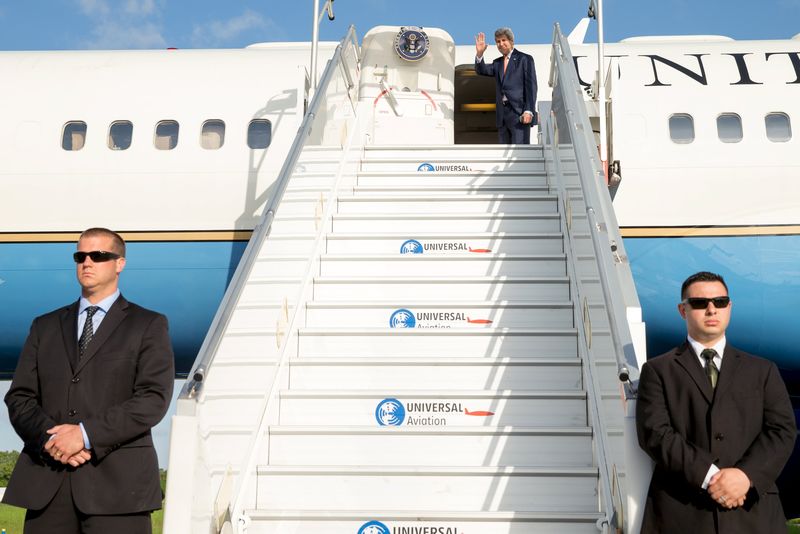By David Brunnstrom
WASHINGTON (Reuters) - U.S. Secretary of State John Kerry will meet senior Chinese leaders in Beijing this weekend at a time of heightened concerns in Asia and Washington over China's pursuit of maritime claims and shared worries about North Korea, the State Department said.
Kerry will be the most senior U.S. official to visit China since many U.S. allies rushed to embrace a new China-led Asian Infrastructure Investment Bank (AIIB), which some see as a challenge to U.S. leadership of the global financial system.
Kerry will spend Saturday and Sunday in the Chinese capital and will discuss the annual U.S.-China Strategic and Economic Dialogue scheduled to be held in Washington in late June as well as Chinese President Xi Jinping's expected visit to the U.S. capital in September.
Kerry will also visit Seoul on May 17-18 for talks with South Korean President Park Geun-hye, including preparations for her planned visit to the United States in June.
South Korea's foreign ministry said on Tuesday it expected to have discussions with Kerry on North Korea and its missile tests.
Pyongyang said on Saturday it had successfully test-fired a missile from a submarine, which, if true, would mark a significant development for isolated North Korea's military capability.
On his way home, Kerry will stop in Seattle on May 19 to deliver a speech on trade, including a 12-nation Trans-Pacific Partnership deal, to which neither China nor South Korea is party, that Washington hopes to see concluded this year.
The U.S.-China Strategic and Economic Dialogue is a discussion forum that highlights the countries' economic interdependence as well as their strategic rivalry.
The State Department said it would be headed by Kerry, U.S. Treasury Secretary Jack Lew, China's State Councilor Yang Jiechi and Vice Premier Wang Yang.
A senior U.S. Treasury official said last month the U.S. emphasis would be on governance standards for the AIIB, exchange-rate policy, climate change and Chinese regulation of information and communications technology.
The United States has publicly welcomed the AIIB, but has announced no plans to join and stressed the need for it to ensure high standards. On exchange rates, it has repeatedly accused China of manipulating its currency to give it an unfair competitive advantage.
China suspended bank technology rules in April that Washington and others had complained amounted to unfair regulatory pressure on foreign firms, but Washington has said further discussion is needed on the issue.

Washington has expressed concern about the speed and scope of Chinese recent land reclamation work on islands it contests with Asia neighbors and U.S. President Barack Obama last month accused China of "flexing its muscles" to advance its maritime claims.